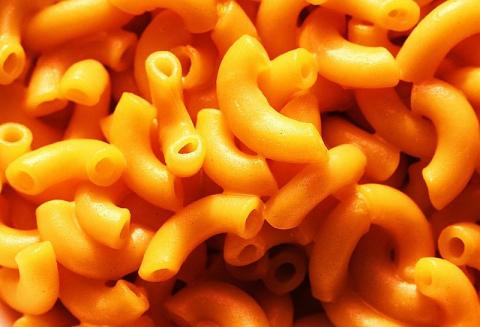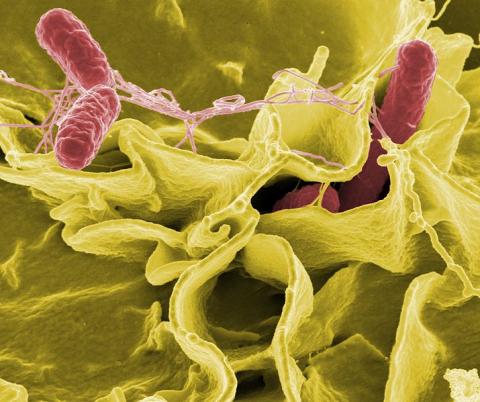
312-981-0409
33 N Dearborn St 10th Floor, Chicago, IL 60602
Serving Clients Across 7 Illinois Locations
Recent Blog Posts
Deli Meats Recalled Due to Listeria Concern

In early January 2017, the United States Department of Agriculture's Food Safety and Inspection Service issued a public health warning about sliced deli products that were available at Dion's restaurants from mid-December through the first week of the new year amid listeria concerns. The meat, which included pastrami, roast beef, and sliced turkey breast, was served on pizzas, sandwiches, and salads at multiple Dion's locations. None of the food tested was found to be contaminated, but the Peter DeFries Corporation, which produced the meat products, stated that it found a cause for concern during routine testing of its equipment.
There have not been any reports of food poisoning illness from individuals who ate at Dion's restaurants during the time that the potentially contaminated meat was available. Individuals who experienced listeriosis symptoms, particularly the elderly, pregnant women, and individuals with weakened immune systems, are advised to seek medical attention.
Summer E.Coli Outbreak Linked to Cilantro

In the summer of 2016, an E.Coli outbreak in Chicago caused 52 victims to seek medical attention for their symptoms, 19 of whom needed to be hospitalized. The outbreak was linked to a Carbon Live Fire Mexican Grill location. The restaurant closed this location as well as its other Chicago store to prevent new E.Coli cases while cooperating with the Chicago Department of Public Health's investigation of the outbreak.
Initially, the food poisoning cases could not be linked to a specific food item at the restaurant. But in December 2016, the Chicago Department of Public Health positively linked the outbreak to the cilantro used at the restaurant.
Risks with Cilantro and Other Fresh Herbs and Produce
When many people think of E.Coli, they think of contaminated beef. E.coli is a group of bacteria that can be found in human and animal intestines and if an individual consumes meat from an animal infected with E.Coli, he or she can suffer from E.Coli poisoning.
E.Coli Outbreak Linked to Bridgeport Restaurant

In the summer of 2016, 25 Chicago residents fell ill with symptoms of Shiga toxin-producing E.Coli (STEC), five of whom had to be hospitalized. STEC is one of many strains of E.Coli that exist, all of which can cause food poisoning symptoms like diarrhea and vomiting. STEC outbreaks are the most commonly-reported type of E.Coli outbreak.
The Chicago Department of Public Health (CDPH) linked this particular STEC outbreak to Carbon Live Fire Mexican Grill. The restaurant voluntarily closed after the outbreak was discovered and cooperated with the CDPH with its investigation. STEC is transmitted through the consumption of contaminated foods, which are often raw milk, undercooked beef, and raw, unwashed produce. The investigation did not determine which specific food product became contaminated and caused this outbreak.
Symptoms of STEC Infection
Vegan Macaroni and Cheese Recalled Due to Undeclared Dairy

Boulder Brands, Inc. has issued a recall of all boxes of its Earth Balance brand vegan macaroni and cheese because the product could potentially contain undeclared dairy. The product is available in two varieties: Vegan White Cheddar Mac & Cheese and Vegan Cheddar Mac & Cheese. Both varieties have been recalled. The recall includes all boxes set to expire in 2017.
Consumer have many different reasons for choosing vegan food. Some opt to live a vegan lifestyle due to their personal ethics, feeling that it is unethical to consume animal products. Others choose vegan food because of a dairy allergy – seeing the word “vegan” on a package should, ideally, be an easy shorthand for an individual seeking food products that do not contain any dairy or other animal derivatives. Others, still, choose vegan as a way of reducing their impact on the environment. To help consumers make informed choices and avoid products that could potentially cause them to become ill, food manufacturers are required to label their products' ingredients and whether they contain any known allergens. An allergic reaction can be similar to an illness resulting from food poisoning.
Fairway Market Recalls Candy Corn Over Undeclared Allergen

In December 2016, Fairway Market of New York announced its recall of its store brand candy corn because the product could contain egg, despite the packaging not stating this. So far, one individual has reported suffering an allergic reaction from consuming Fairway candy corn. Individuals with egg allergies who have purchased this product are advised to return it to the store for a refund or throw it in the trash.
Fairway Market operates specialty food stores in New York, New Jersey, and Connecticut. Like Whole Foods and Trader Joe's, many specialty products are sold under the store's own brand. This recall came before more victims fell ill as a result of an undeclared allergen, which can be as dangerous as suffering from food poisoning.
Three Dead, Five Ill After a Thanksgiving Luncheon at Antioch American Legion Hall
During the holiday season, churches and charitable organizations across the country host meals and social gatherings for the residents of their communities, particularly those residents who do not have close friends or relatives to visit for holiday celebrations. These gatherings are often organized and staffed by volunteers who, despite having kind intentions, do not always have the food handling skills necessary to safely serve others. Food may be kept at room temperature on long buffets to ensure that all guests have the chance to eat at these celebrations, potentially fostering harmful bacteria.
In November 2016, a community church in California hosted a Thanksgiving luncheon using food donated from local restaurants. Approximately 800 people attended the event. In the days that followed, eight of the attendees were admitted to local hospitals with food poisoning symptoms. Of the eight, three died.
Food Poisoning Compilations Can Be Deadly
California Man Arrested for Felony Food Poisoning

In most cases, food poisoning occurs because of an individual or group's negligence. This can be a restaurant failing to maintain a sterile kitchen environment, a produce manufacture failing to clean produce thoroughly before packaging it, a grocery store failing to remove a recalled product from its shelves, or even the host of a party leaving food at room temperature for hours, allowing harmful bacteria to develop in it. These are all examples of ignorance around food safety or callous handling of food products.
Sometimes, food poisoning is the result of a much more sinister behavior: intentional tampering. Recently, a man in California was arrested and charged with food tampering after he was observed pouring an unknown substance on two self-service food bars on surveillance videos from a Baht Fresh Mexican Grill and a Raley's grocery store. His actions are believed to be the cause of a few cases of food poisoning, one of which caused a 12-year-old victim to be hospitalized. This came after a similar incident in Ann Arbor, Michigan, where a man was found guilty of intentionally tampering with food by spraying mouse poison on fresh produce and on dishes at hot food bars.
What is the Difference Between Food Poisoning and Foodborne Illness?

The terms “food poisoning” and “foodborne illness” are frequently used interchangeably online and in face-to-face conversations. Generally, they are understood to refer to the same thing, but the truth is that they actually refer to two distinct concepts. Foodborne illness is any illness caused by eating contaminated food. It can occur after consuming food contaminated with harmful bacteria or other pathogens. Food poisoning is a specific subset of foodborne illness. When an individual suffers from food poisoning, he or she suffers from the effects of consuming specific toxins.
If you experience symptoms of foodborne illness, keep yourself hydrated and get a sufficient amount of rest. In most cases, food poisoning and other types of foodborne illness can only be treated with rest, hydration, and avoiding certain foods while recovering. If you experience worsened symptoms or complications like dehydration, seek medical attention.
Hepatitis A Outbreak is Linked to Frozen Strawberries by the FDA

The United States Food and Drug Administration (FDA) and the Centers for Disease Control and Prevention (CDC) have linked a recent outbreak of Hepatitis A to frozen strawberries imported to the country by the International Company for Agricultural Production and Processing (ICAPP). The strawberries were received at five distribution centers throughout the nation and sold under various regional brand names. In October 2016, ICAPP recalled the strawberries, but by then, they might have reached consumers and could have been part of food service operations as late as early November 2016. As of late October 2016, 130 people reported suffering from Hepatitis A after possibly consuming the strawberries.
Hepatitis A, like many other types of food poisoning, can have serious complications for a victim, such as reduced liver function. There is a vaccine for Hepatitis A that can protect a patient for up to one year.
Do Not Wash Your Turkey This Thanksgiving

At first glance, you might think you misread the title of this blog post. For most of us, washing food is the natural next step before seasoning and cooking it. Conventional wisdom says that this is the way to remove harmful bacteria that can cause food poisoning. With most foods, this is correct. But with raw poultry, washing simply splashes juices from the bird and bacteria around the sink and countertop, creating an atmosphere in which they can be spread to other foods and onto guests' hands.
So, what should you do with the turkey? Cook it to a safe internal temperature of at least 165 degrees Fahrenheit. This will kill any harmful bacteria in the turkey. To determine whether your turkey has reached a safe internal temperature, stick a meat thermometer into the thickest part of the breast. Another way you can make your turkey safer this Thanksgiving is to avoid stuffing it before putting it into the oven. When stuffing is cooked inside a turkey, it absorbs the meat's juice. Rarely, the stuffing reaches a safe internal temperature, which means that it can harbor dangerous bacteria even if the meat does not. To enjoy safe stuffing this year, cook the stuffing separately and add it to the turkey while it rests after being cooked.
-

Foreclosure and Bankruptcy
Visit Website -

Real Estate and Estate Planning
Visit Website -

Personal Injury
Visit Website

 Spanish
Spanish Cantonese
Cantonese















